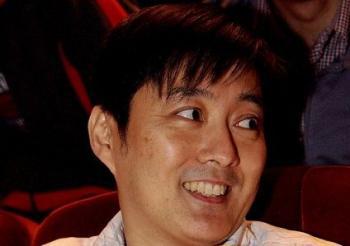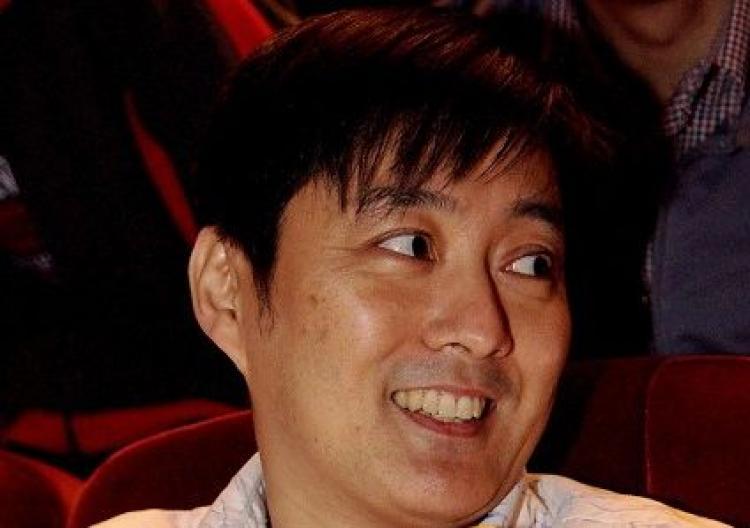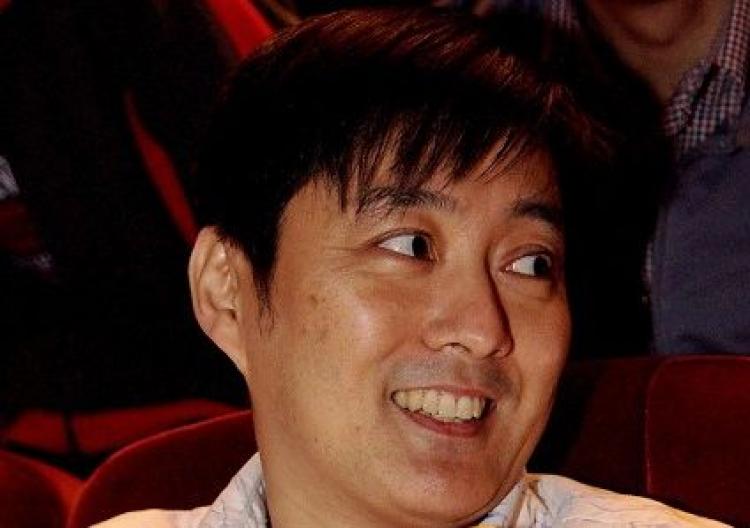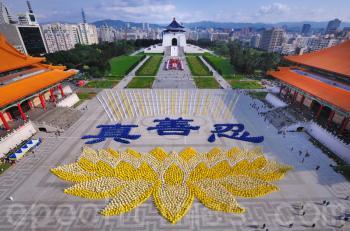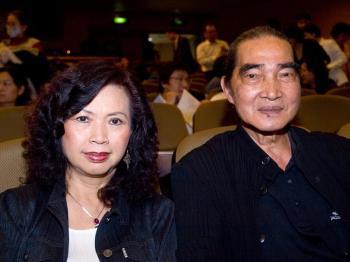TAIPEI, Taiwan—Ben Chisi Lee, a well-known actor in Taiwan, brought his mother and daughter to watch Divine Performing Arts (DPA) 2009 World Tour performance at Taipei International Convention Center on Feb. 28.
Mr. Lee assumed major roles in various movies and dramas, including “Kendo Kids” (1984), “Out of the Blue” (1984), “Cold” (1987), “Gang of Three Forever” (1989), “Select Wife in Computer” (1993), and “Ghost Husband” (1993).
Upon watching the performance, Mr. Lee said that he had never seen such a show in his many years in Taiwan. He was touched by the music and dance, all of which had Chinese elements. He wants to share this show with everyone and hopes that everybody can come to see it.
Mr. Lee was a graduate of Guoguang Art School, a school that produced many Asian celebrities, including singer Cyndi Wang, Rainie Yang, Jimmy Chihying Lin, and the Sisters of Shu (SOS).
He said that at that school, he learned folk dance and tap dance and therefore has basic knowledge in dance. Yet, DPA touched him deeply as it manifested 5,000 years of Chinese culture. Moreover, the Buddhist spirit was also included. DPA made him happy, and he sensed the Buddha’s law.
Mr. Lee said, “I brought my mother and child to the show, although she’s only 4 years old, I hope she can watch more cultural productions of this kind, as this includes the essence of Chinese culture.”
Born into a family of Peking Opera, he naturally wants to preserve traditional Chinese culture.
“Actually, most of the original and traditional things in Taiwan nowadays are found in Taiwan rather than in mainland China. During the Cultural Revolution, much of the traditional culture was lost. Even in Taiwan, the political struggle has made the culture fade, which hurts my heart.
“There are many Taiwan productions that incorporate political elements. I hope they can promote something that’s more cultural so people can become happier. Aside from the financial crisis, many people are very miserable. When there are more food for the soul, people’s hearts can be inspired, and it’ll be very memorable.”
For more information please visit DivinePerformingArts.org
Mr. Lee assumed major roles in various movies and dramas, including “Kendo Kids” (1984), “Out of the Blue” (1984), “Cold” (1987), “Gang of Three Forever” (1989), “Select Wife in Computer” (1993), and “Ghost Husband” (1993).
Upon watching the performance, Mr. Lee said that he had never seen such a show in his many years in Taiwan. He was touched by the music and dance, all of which had Chinese elements. He wants to share this show with everyone and hopes that everybody can come to see it.
Mr. Lee was a graduate of Guoguang Art School, a school that produced many Asian celebrities, including singer Cyndi Wang, Rainie Yang, Jimmy Chihying Lin, and the Sisters of Shu (SOS).
He said that at that school, he learned folk dance and tap dance and therefore has basic knowledge in dance. Yet, DPA touched him deeply as it manifested 5,000 years of Chinese culture. Moreover, the Buddhist spirit was also included. DPA made him happy, and he sensed the Buddha’s law.
Mr. Lee said, “I brought my mother and child to the show, although she’s only 4 years old, I hope she can watch more cultural productions of this kind, as this includes the essence of Chinese culture.”
Born into a family of Peking Opera, he naturally wants to preserve traditional Chinese culture.
“Actually, most of the original and traditional things in Taiwan nowadays are found in Taiwan rather than in mainland China. During the Cultural Revolution, much of the traditional culture was lost. Even in Taiwan, the political struggle has made the culture fade, which hurts my heart.
“There are many Taiwan productions that incorporate political elements. I hope they can promote something that’s more cultural so people can become happier. Aside from the financial crisis, many people are very miserable. When there are more food for the soul, people’s hearts can be inspired, and it’ll be very memorable.”
For more information please visit DivinePerformingArts.org

